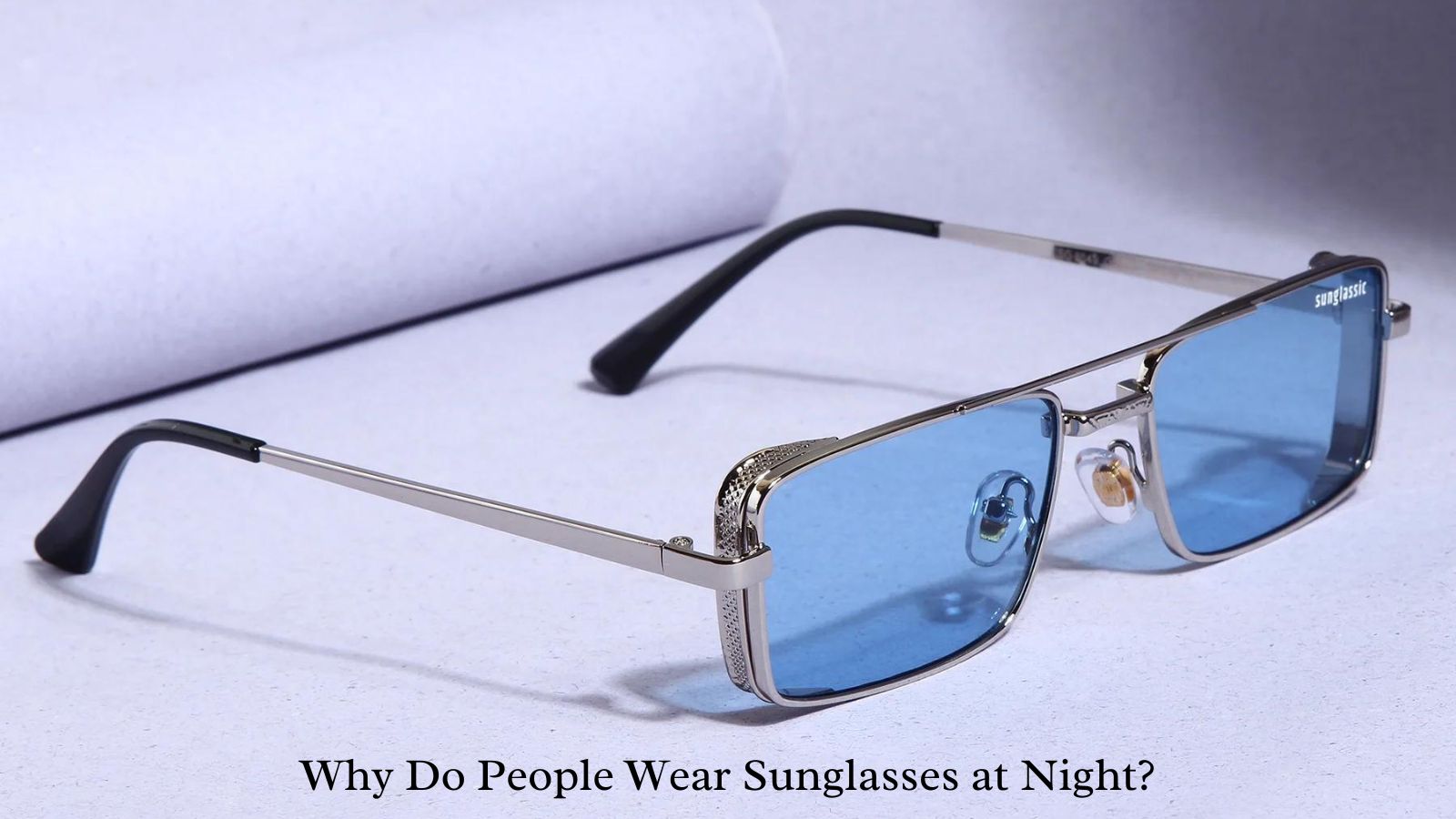
Why Do People Wear Sunglasses at Night?
Wearing sunglasses at night might seem like an odd fashion statement or an eccentric habit, but there are several reasons why people choose to sport these shades even when the sun has set. From health and style to social influence, the phenomenon of wearing sunglasses after dark can be attributed to a variety of factors. In this blog, we’ll explore the reasons behind this trend and what it reveals about our perceptions of fashion, function, and identity.
The Basics of Sunglasses: Function Meets Fashion
Sunglasses are primarily designed to protect our eyes from harmful ultraviolet (UV) rays and reduce glare from bright sunlight. During the day, they help shield our eyes from UV radiation and glare, contributing to visual comfort and eye health. But as daylight fades and nighttime approaches, the need for UV protection diminishes. So why do some people continue to wear sunglasses when the sun is no longer a factor?
Health and Sensitivity: A Practical Reason
For some individuals, wearing sunglasses at night is a practical choice driven by sensitivity to light. This condition, known as photophobia, can make bright lights uncomfortable or even painful. Photophobia is not limited to sunlight; it can also be triggered by artificial lights, such as those found in streetlights, car headlights, or neon signs.
People with light sensitivity may choose to wear sunglasses at night to:
- Reduce Light Exposure: Sunglasses can help filter out harsh artificial lights, providing relief from discomfort.
- Prevent Headaches: For those prone to migraines or headaches triggered by bright lights, sunglasses can be a simple yet effective solution.
- Maintain Comfort: Even at night, some people prefer the dimmed view that sunglasses provide, reducing glare and improving visual comfort.
Fashion Statement: The Influence of Celebrity Culture
One of the most visible reasons people wear sunglasses at night is the influence of celebrity culture. Sunglasses have long been associated with style, sophistication, and mystery, often seen on famous figures both during the day and at night. The trend of wearing sunglasses after dark can be linked to the desire to emulate the glamorous image of celebrities and fashion icons.
Key fashion motivations include:
- Style and Statement: Sunglasses are a fashion accessory that can elevate an outfit and make a bold style statement. Wearing them at night can enhance one's look and add an element of coolness or intrigue.
- Mystique and Privacy: Sunglasses can create an aura of mystery by obscuring part of the face. This can be appealing for those who wish to maintain a degree of privacy or anonymity in social settings.
- Trend Following: When celebrities and influencers are spotted wearing sunglasses at night, it often sets a trend that others want to follow. This trend can quickly become a part of popular fashion culture.
Social Perception: Confidence and Identity
Wearing sunglasses at night can also be a way to project confidence and assert one's identity. Sunglasses are often associated with certain attitudes and lifestyles, such as rebelliousness or nonconformity. By wearing them at night, individuals can express their unique personality and stand out from the crowd.
Benefits related to social perception include:
- Confidence Boost: Sunglasses can act as a form of armor, making the wearer feel more confident in social interactions. They can help individuals feel more self-assured and assertive.
- Personal Branding: For some, wearing sunglasses is part of a broader personal brand or image. It can be a way to reinforce a specific style or persona.
- Social Signals: In certain social circles, wearing sunglasses at night can signal membership or alignment with particular groups or subcultures.
Psychological Impact: Perception and Self-Image
The psychological impact of wearing sunglasses extends beyond just fashion and functionality. Sunglasses can alter how individuals perceive themselves and how they are perceived by others. This shift in perception can have a significant effect on mood and self-image.
Key psychological aspects include:
- Altered Perception: Sunglasses can change the way individuals see the world around them. This altered visual perception can influence mood and emotions, providing a sense of detachment or calm.
- Self-Image: Wearing sunglasses can impact self-image by enhancing one's appearance and projecting a certain attitude. This boost in self-esteem can contribute to a more positive mood.
- Emotional Shielding: Sunglasses can act as a barrier, shielding the wearer from unwanted attention or emotional interactions. This can provide a sense of protection and security.
Practical Considerations: Nighttime Sunglasses and Light Sensitivity
While the trend of wearing sunglasses at night may be driven by fashion or social factors, there are practical considerations for those who genuinely need them for light sensitivity. Nighttime sunglasses are typically designed with specific features to address these needs.
Features of nighttime sunglasses may include:
- Anti-Glare Lenses: Some sunglasses are equipped with lenses that reduce glare from artificial lights, improving visual comfort and clarity.
- Light-Tinting Technology: Lenses with light-tinting technology can help filter out excessive brightness without completely blocking out light. This allows for a more comfortable viewing experience.
- Custom Solutions: For individuals with severe light sensitivity, custom solutions such as photochromic lenses or specialized coatings may be used to manage light exposure effectively.
The Cultural Aspect: Historical and Contemporary Trends
The trend of wearing sunglasses at night is not a new phenomenon. Historically, sunglasses have been associated with various cultural and social movements. From Hollywood stars of the mid-20th century to modern-day influencers, sunglasses have played a role in shaping and reflecting cultural trends.
Historical insights include:
- Hollywood Influence: Icons like Audrey Hepburn and James Dean popularized sunglasses as a symbol of glamour and rebellion. Their influence extended to fashion choices both day and night.
- Cultural Shifts: Over time, sunglasses have evolved from a functional accessory to a cultural symbol. The trend of wearing them at night reflects changing attitudes toward fashion and self-expression.
Conclusion: Embracing the Trend or Addressing Needs
Wearing sunglasses at night can be driven by various factors, from practical needs related to light sensitivity to fashion statements and social influences. Whether it's for health reasons, a style choice, or psychological impact, sunglasses offer a unique way to enhance both personal comfort and public image.
For those considering the trend, it’s essential to understand the underlying reasons and choose sunglasses that fit their needs and preferences. Whether you’re drawn to the fashion-forward look or seeking relief from light sensitivity, sunglasses can play a versatile role in enhancing your lifestyle.
SHOP BY SHAPE
WORN BY OVER 200.000 PEOPLE WORLDWIDE



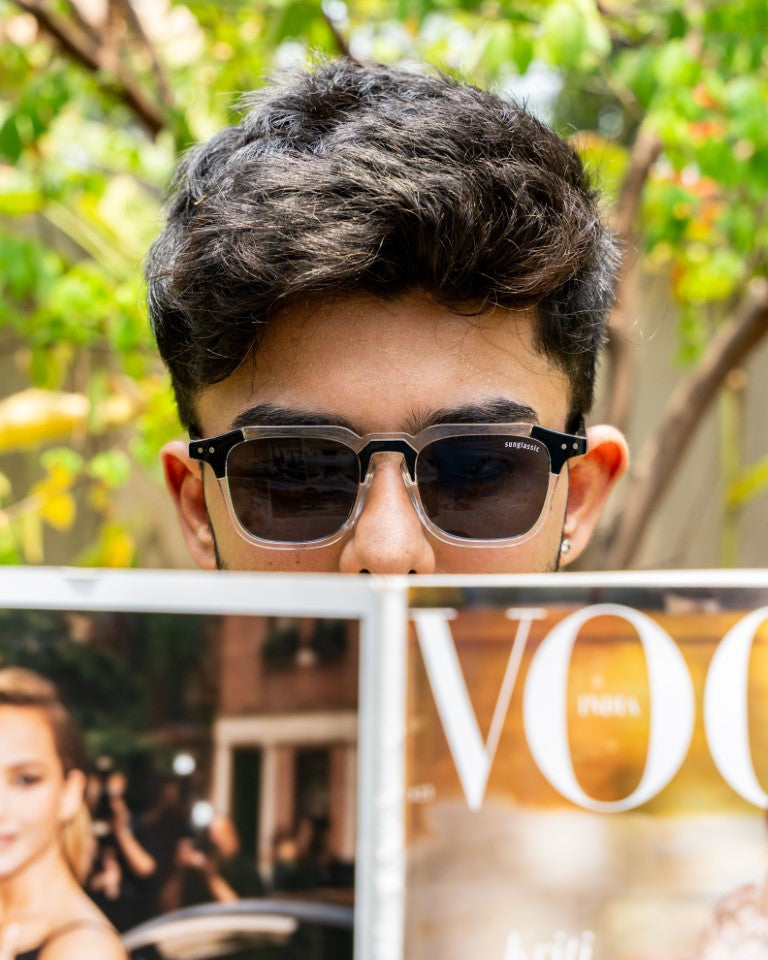
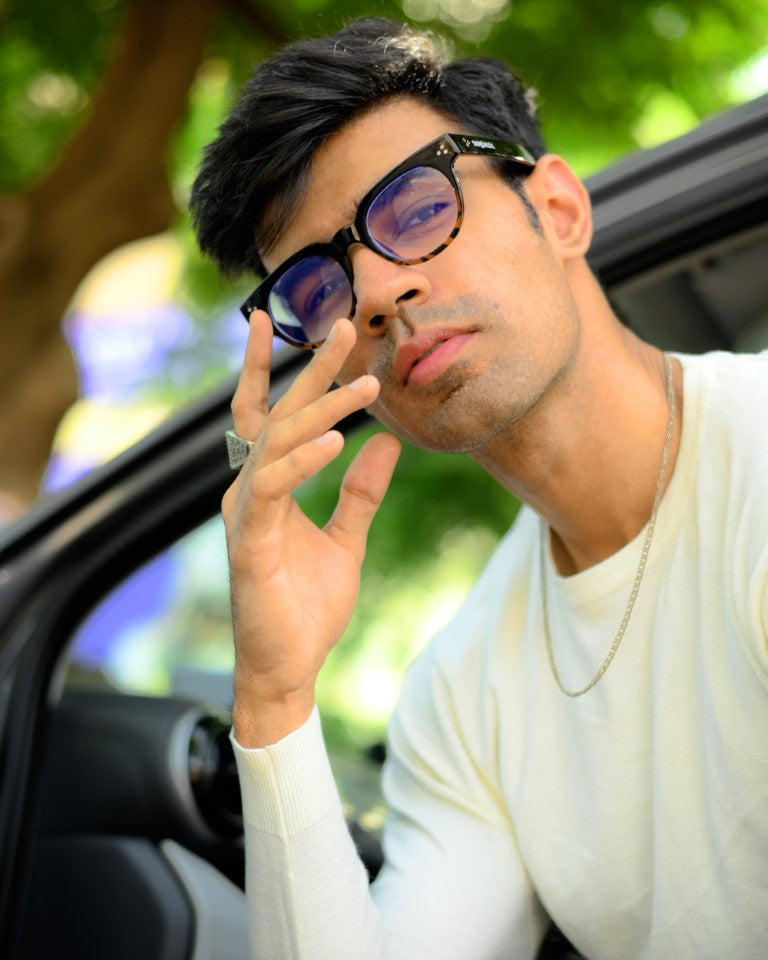
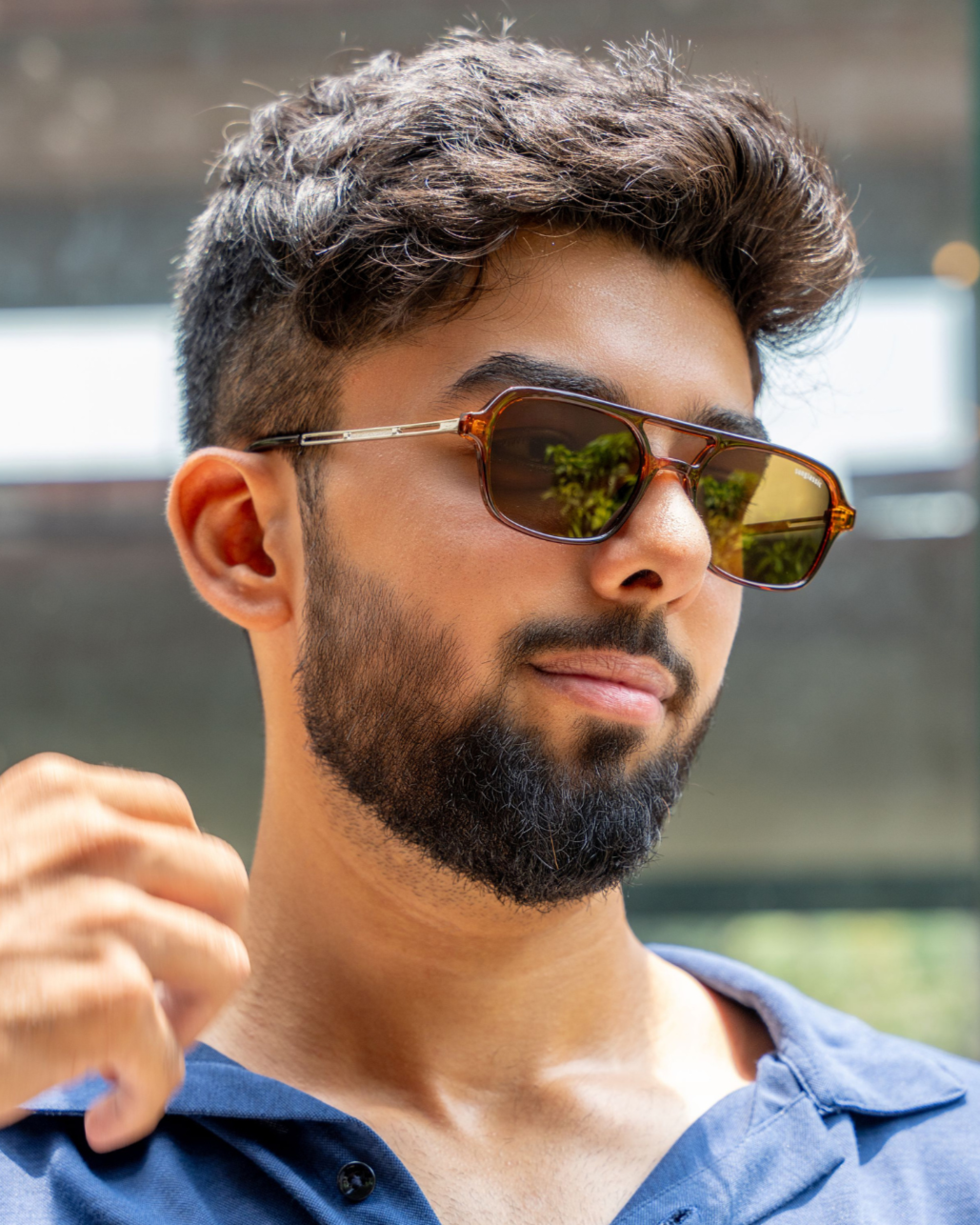
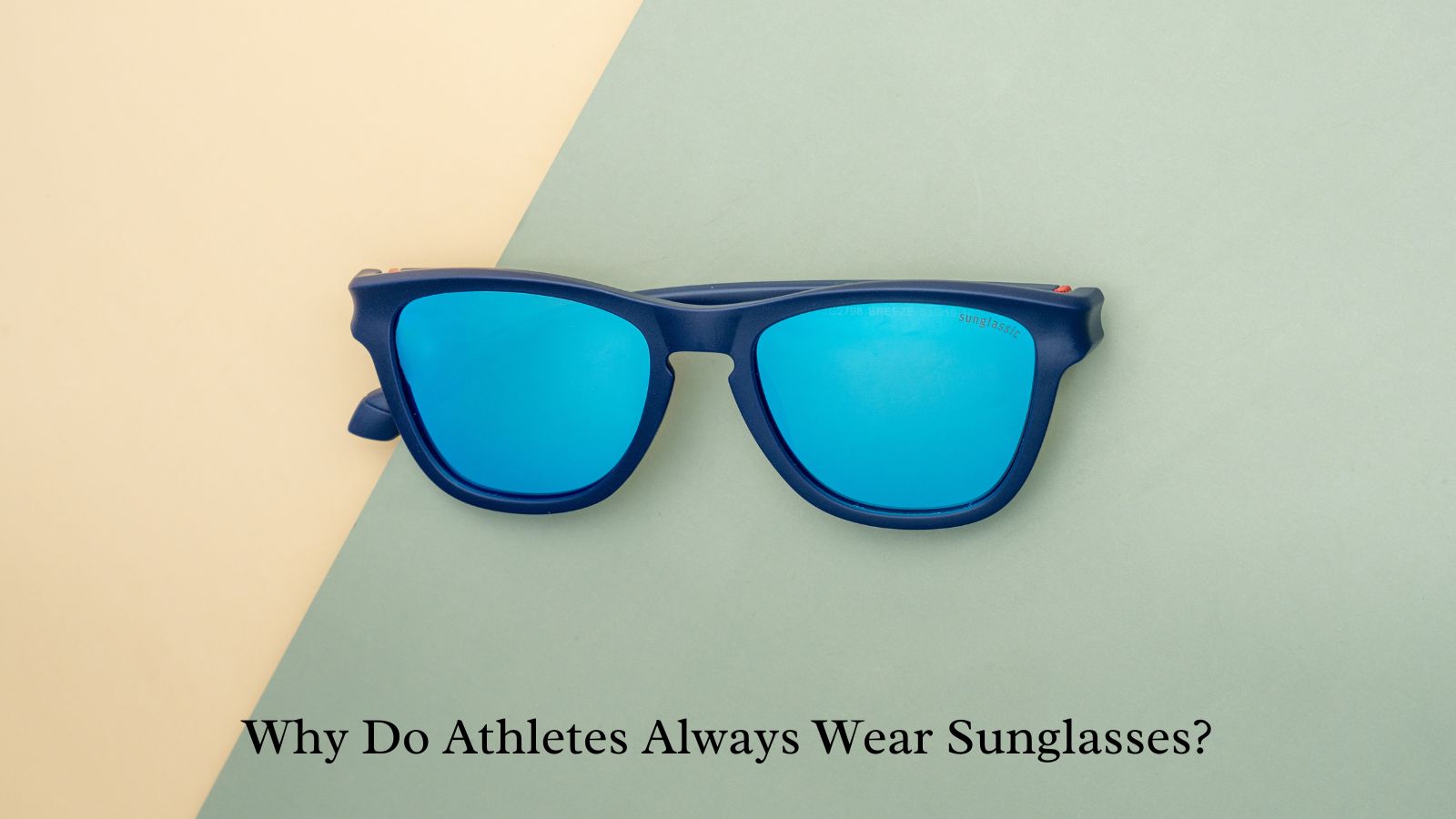
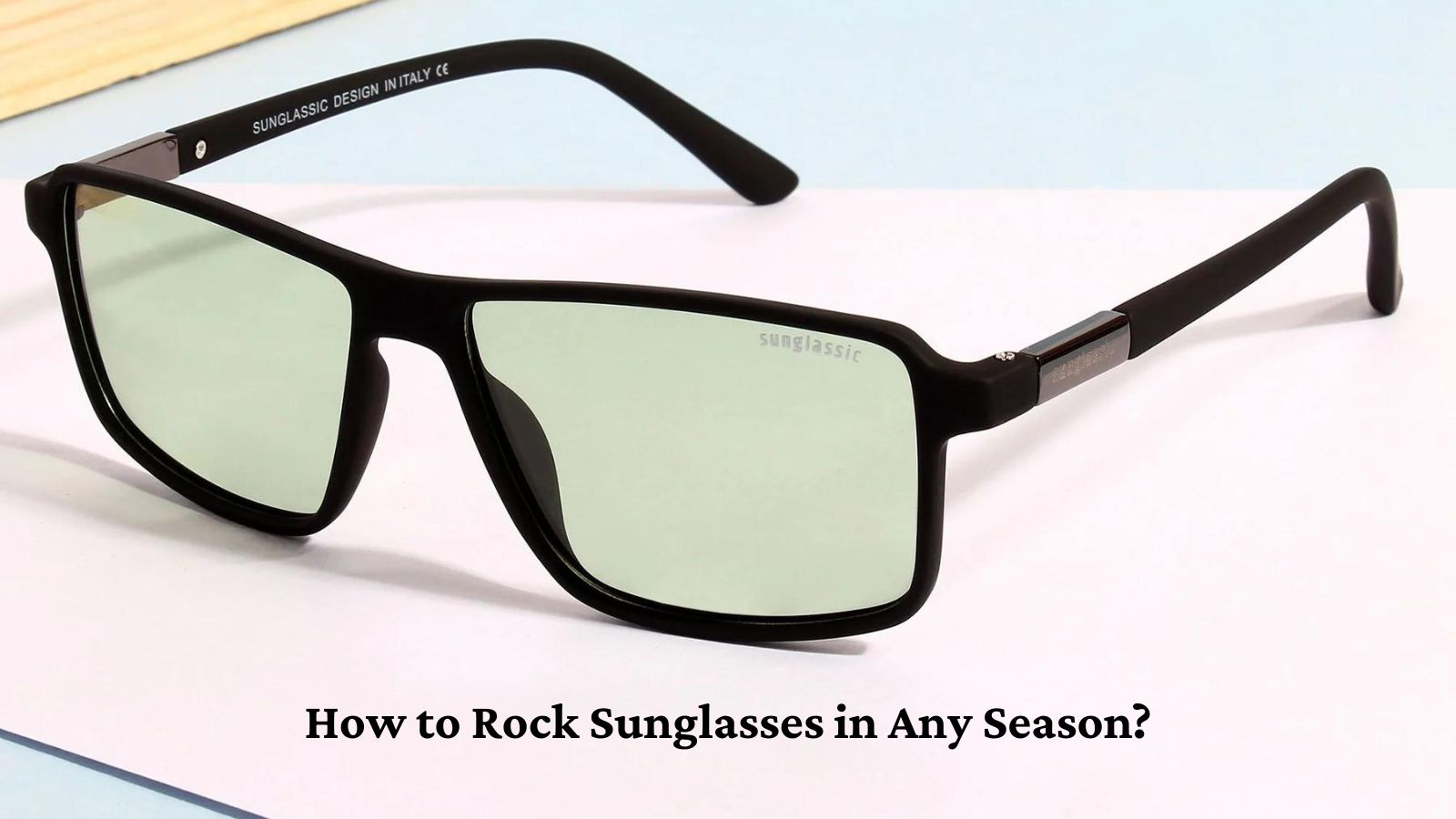
Leave a comment
This site is protected by hCaptcha and the hCaptcha Privacy Policy and Terms of Service apply.